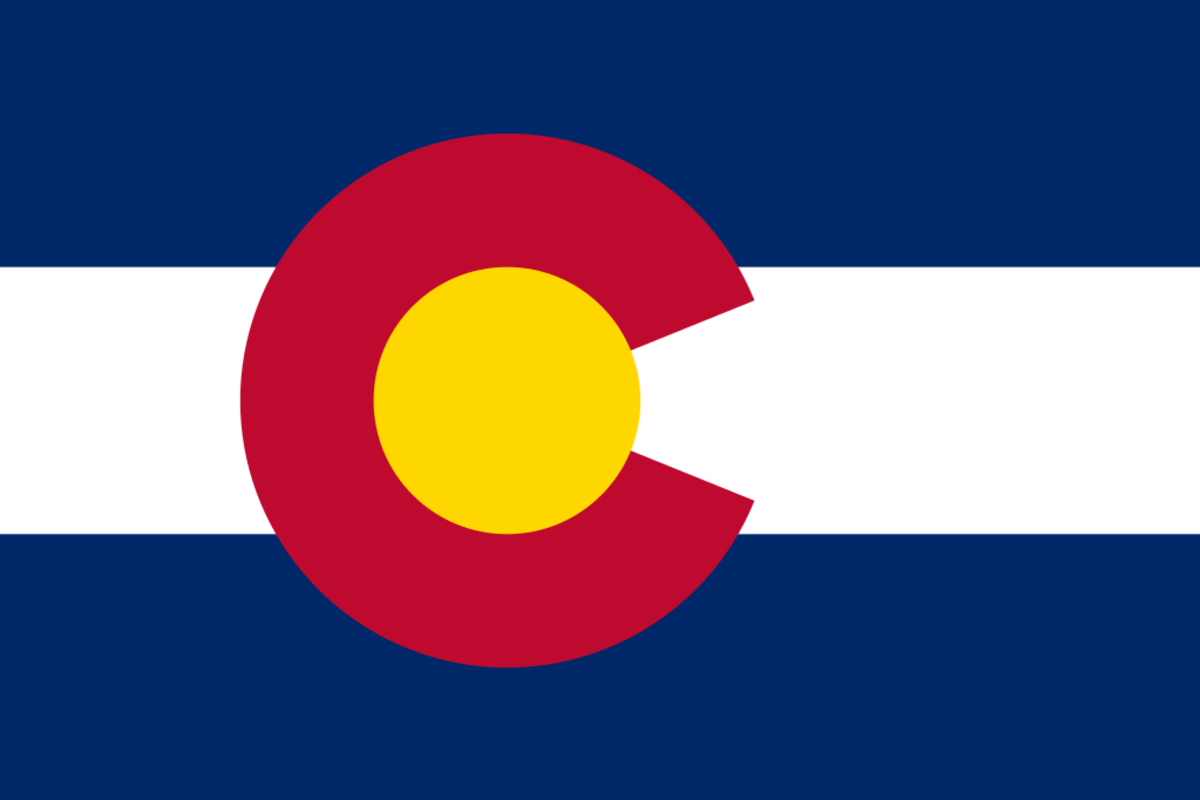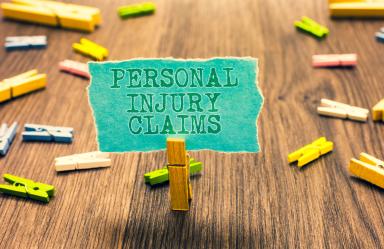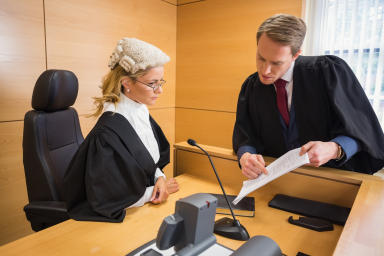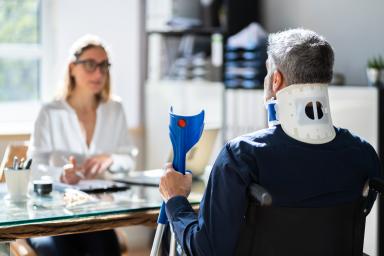Colorado Personal Injury Laws

Personal injury lawsuits are a type of legal dispute that arises when someone gets injured as a result of an accident or a dangerous condition, with another party being held responsible for the harm that was done. In Colorado, most personal injury cases involve car accidents, workplace-related mishaps and illnesses, and dog bites.
Many individuals in the state have also filed legal action due to defective products. In one instance in 2017, a young woman became gravely injured when a cream whipper exploded in her face, inflicting extensive brain injury and lifelong damage to her vestibular system. Due to the severity of her incurred damages, she was awarded a $5 million settlement. Numerous kitchen appliance manufacturers previously advertised the same product, which, as it turns out, has a history of malfunctioning and causing death.
This article discusses some of the state’s personal injury laws and guidelines, as well as various resources that offer legal services and information.
Colorado's Product Liability Laws
Product liability lawsuits can be time-consuming and complex, as they may require an extensive study to determine which manufacturer or supplier developed the product or its component that contribute to a person’s injury. In this regard, individuals harmed due to a defective product can greatly benefit from the assistance of a personal injury lawyer in holding the liable party accountable.
Colorado courts analyze what occurred in a defective product case using either a negligence or product liability theory. The latter one is also known as the "strict product liability" rule, wherein a liable party's intent is irrelevant as long as the plaintiff can prove that the product in question was faulty. Under this framework, a case’s scenario tends to fall into one of the following categories:
Colorado Premises Liability Laws
Lawmakers in the state have enacted statutes on premises liability, holding landowners liable for causing harm to a visitor on their residential or commercial property. Injuries leading to a premises liability case may arise from different dangerous conditions on the property.
Colorado’s premise liability statute classifies people that enter onto property into three categories:
An invitee is a person invited by a landowner to be on their property, typically for commercial or business purposes. Examples include a contractor for a home improvement project or a customer of a business.
A licensee is an individual invited by the owner for a specific personal reason, such as a social gathering.
A trespasser enters and remains on a property without the knowledge of the landowner.
The law will apply different duties to each category. A landowner has to protect an invitee from dangerous conditions on the property that they know or should have known about. A landowner has to protect licensees from dangerous conditions that they know about. Finally, a landowner has to avoid intentionally harming a trespasser.
Under the state's premises liability laws, every landowner should ensure their property is free from hazardous conditions that could potentially harm an invitee or a licensee. They are also required to warn them of any dangerous conditions that exist on their premises.
Meanwhile, a property owner is not required to follow these expectations in the case of trespassers. Despite this, if they become aware of a trespasser's presence, they must ensure the trespasser will not get hurt. This is because if a trespasser gets harmed while on another person's property, they can file a lawsuit to obtain compensation for their injury.
Colorado Dog Bites Law
According to the CDC, over 4.5 million annual cases of dog bites are recorded in the country, with more than half involving children. A great number of these cases take place in Colorado. In In fact, its capital, Denver, was among the worst cities across the U.S. for dog attacks on letter carriers in 2019.
The state of Colorado's dog bite law only applies to those who are legitimately on private or public property when a dog bites them. It stipulates that any person or entity that owns, keeps, possesses, or has control or custody of a dog that causes physical harm or even death may be held accountable for the incident. It also makes no difference whether an owner took reasonable precautions to restrict their pet; all that counts is whether or not someone gets bitten and how serious the resulting injury is. Additionally, because the state does not follow the "one bite" rule that some jurisdictions implement, an owner must pay damages to the victim whether or not they knew or should have known that their dog was likely to act in a dangerous or harmful way.
If a victim was attacked in a different way — like if a dog charged at them like a bull — they can file a claim in line with the state’s personal injury laws instead of the dog bite law. Regardless of the nature of an attack, an injured victim may still lodge a case to recover compensation. One should note, however, that settlements for dog bites are restricted to economic losses, such as hospital bills and lost wages.
Colorado Workers’ Compensation Laws
According to state legislation, all businesses in Colorado with at least one employee are required to have workers' compensation insurance, even if their staff members come from the same family. The insurance — which should not be charged to the employees themselves — must cover their medical expenses and lost earnings in case they get injured or become ill while doing their responsibilities on the job.
From January to August 2023, over 18,000 workers' compensation claims were filed in Colorado. The majority of the reported work-related injuries and illnesses resulted from:
Vehicular accidents
Falling objects
Slips and falls
Machine entanglement
Overexertion
Repetitive motion
Exposure to asbestos.
The victim of a workplace accident or poor working conditions is entitled to benefits if their claim is successful. The benefits are categorized into the following:
However, a victim's benefits may be reduced if they:
Wilfully did not follow safety rules;
Deliberately did not use a safety device;
Used drugs or consumed alcoholic beverages at the time of the workplace accident.
Crucial Claims Timelines for Injured Employees
If an employee is harmed at work, they must immediately seek emergency medical care at the nearest medical facility.
They should notify their employer in writing within 10 days of the occurrence of the injury.
For non-emergencies, an injured or sick worker should seek medical attention from a healthcare service provider accredited by their company.
They should file a Workers' Claim for Compensation (WC15) with the Division of Workers' Compensation within the two-year statute of limitations.
After receiving notice of an injury or an occupational disease within 20 days from when the claim was initiated, the respondents should file a General Admission of Liability or Denial by Notice of Contest. If they deny the claim, the injured or sick worker may either apply for an expedited or standard hearing.
The employee should still continue to get medical care until they reach Maximum Medical Improvement.
When the employee reaches MMI, the respondents have a month to file a Final Admission of Liability. If the worker agrees, the claim will close. It is important to note that the closure will not affect the payment of the benefits still owed. On the other hand, if the worker disagrees with the date of the MMI and/or impairment rating, they need to object within 30 days of the Final Admission. When they have lodged their notice of objection, they should either file for a Division Independent Medical Examination or an Application for Hearing within six months. Otherwise, the claim may be closed.
Upon a worker's return to work or discharge from employment, their employer should file a Supplemental Report of Accident form with their insurance company.
Meanwhile, employees who have been harmed on or after January 1, 2020 while fulfilling their responsibilities for a company that does not have workers' compensation insurance may be eligible for the Colorado Uninsured Employer Fund. The fund may cover medical expenses, burial costs, and disfigurement payments, as well as temporary, permanent total, and permanent partial disability benefits.
Colorado Business Liability Insurance Requirements
Commercial or business liability insurance safeguards Colorado companies from financial loss stemming from claims of bodily harm or property damage by another party. This form of protection usually covers payment for:
Bodily injury;
Property damage;
Personal injury;
Advertising injury;
Legal defense and judgments.
In Colorado, there is no law that requires small businesses to carry this type of policy; the state only mandates that businesses purchase workers' compensation insurance. However, it is best for companies to have business liability insurance, given the fault system governing personal injury cases and allowing plaintiffs to sue businesses for economic and non-economic damages.
Different factors — such as business type and kind of item produced — affect how much commercial general liability insurance one needs. For small businesses, it is generally safe to purchase coverage between $500,000 and $1 million. However, since it is possible for a Colorado court to impose more than a million dollars for non-economic losses in a personal injury case, it makes sense to carry as much liability insurance as one can afford.
How Much Can Someone Sue For an Injury in Colorado?
In Colorado, there is no limit to the amount of economic damages one can recover. However, as of 2023, non-economic damages in personal injury cases have a $642,180 cap. Additionally, if there is clear evidence that warrants an increase in payment, non-economic damages could be as high as $1,284,370. Non-economic losses are similarly capped in Colorado wrongful death cases. This limit for 2023 is set at $598,350. However, if the death was the consequence of a heinous crime, the cap will be lifted. Meanwhile, the state has imposed a $300,000 cap on non-economic damages for medical malpractice cases.
Moreover, since the state follows a modified comparative negligence rule, a plaintiff’s award will also depend on their own degree of fault. According to Colorado Revised Statute 13-21-111, if a plaintiff is less than 50% at fault for their injuries, they can still recover compensation. They will, however, receive no award if a judge or jury determines them to be 50% or more liable for their injuries.
For instance, suppose a person goes grocery shopping. Since they were talking on the phone while looking at the shelves, they did not notice the orange cone and the "wet floor" sign on the freshly mopped floor before slipping and falling. Because of the injuries they incurred, the shopper filed a lawsuit against the store. However, the store maintained that the shopper was also partially to blame for the injuries. After deciding that the shopper's total damages were worth $40,000, the jury allocated them 30% of the liability since they were not paying attention when the incident took place. Because they were only 30% at fault, they can still recover 70% of the total award, or $28,000.
The Statute of Limitations in Colorado
Victims should ensure that they are filing a personal injury lawsuit within the right statute of limitations since failure to do so removes their chance of recovering compensation for their losses. The state’s statutes of limitations for different causes of action are shown below:
Per Colorado's discovery rule, the statute of limitations in medical malpractice cases only starts when a victim learns of their injury. Other instances where the statute of limitations only begins include:
When an injured minor turns 18.
When a mentally incompetent individual harmed in an accident has their mental competence restored.
When the at-fault party returns to the state or becomes available after leaving or going into hiding.
Additionally, state law assumes the following if 10 years have already passed since the item in a potential product liability case was sold:
The product was not defective.
The seller or manufacturer was not negligent.
All warnings and instructions were adequate at the time it was sold.
If you are unsure of the statute of limitations that applies to your situation, you can benefit from hiring a Colorado personal injury lawyer who can help you build a strong case against the party that you are planning to sue.
Legal Resources for Injured Folks in Colorado
Individuals injured due to the negligence or reckless action of another party may file a suit to recover damages. Here are some of the resources they may use as a guide when navigating the legal system:
Colorado Bar Association's Find-A-Lawyer Directory
The Colorado Bar Association offers a “Find-a-Lawyer” program, which asks clients to specify their legal needs and the county they are located in. It will then provide a list of available attorneys who fit the case requirements.
Personal injury victims within El Paso and Teller counties may also use the El Paso County Bar Association Lawyer Referral Service to connect with a qualified attorney. If a client matches with a lawyer, they are required to contact the attorney to set up a consultation. The client's contact details will be sent through text message or email based on the information provided in the request. The referral service’s lawyers may charge up to $100 for the introductory 30-minute consultation and regular rates for retention. One should note that contingency cases involving personal injury and workers’ compensation have a different charging process.
Colorado Courts Record Search
This website, created as an initiative of the Colorado Judicial Branch to help citizens make informed choices, is the state's most comprehensive source for court records. It provides a simpler and more affordable way to obtain real-time legal documents or records without going to a courthouse. Individuals visiting the website can search for open and closed cases, except for sealed, juvenile, and probate cases. Certain information within each case is also non-public, including the names of all parties involved except the plaintiff and defendant.
For questions or assistance, those requesting court documents may contact the website's support team at 866-277-7006 or cocourts@risk.lexisnexis.com. It is available from 5:30 a.m. to 8:00 p.m. on weekdays.
Public Access to Court Electronic Records
Individuals looking for their case documents may also visit this site. Those who cannot access court documents or afford the services can complete the Fee Exemption Request form and send it to cod_cmecf@cod.uscourts.gov. They may also contact the Clerk's Office at 303-844-3433.
Colorado Department of Labor and Employment
The agency provides various resources for injured workers seeking benefits. Through its website, employees who have been involved in workplace accidents or suffered on-the-job illness can know their rights as injured employees and access the required documents to file a claim. They can also search for a workers' compensation attorney from the provided list.
Expertise.com StaffAuthor
Step into the world of Expertise.com, your go-to hub for credible insights. We don't take accuracy lightly around here. Our squad of expert reviewers, each a maestro in their field, has given the green light to every single article you'll find. From rigorous fact-checking to meticulous evaluations of service providers, we've got it all covered. So feel free to dive in and explore. The information you'll uncover has been stamped with the seal of approval by our top-notch experts.

Lain A. LawrenceReviewer
Lain A. Lawrence started his career as a plaintiff's car accident attorney at a large law office. Since 2010, Mr. Lawrence has handled hundreds of cases as an aggressive advocate for his clients. Now, Mr. Lawrence handles personal injury cases as well as criminal cases at Lawrence Law Firm.




